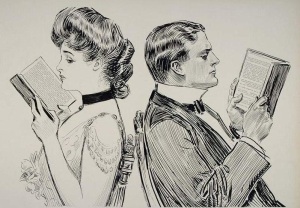 2012-13 got too busy for us all to find the time to check in with you. But here we are, a few days before “summer” comes to UM-Flint! For this go-round, we asked ourselves what we were most determined to read this summer, and then each suggested a must-read title for you. Below you’ll find evidence that English teachers really do like books, along with an essential reading list for the beach. See you next year!
2012-13 got too busy for us all to find the time to check in with you. But here we are, a few days before “summer” comes to UM-Flint! For this go-round, we asked ourselves what we were most determined to read this summer, and then each suggested a must-read title for you. Below you’ll find evidence that English teachers really do like books, along with an essential reading list for the beach. See you next year!
Cathy Akers-Jordan
The Lord of the Rings by J. R. R. Tolkien. Sure, the movies were great; the book is even better. The surface story is a good saga, but the deeper meanings (hope in the face of despair, sacrifice, friendship, environmentalism, and the value and price of freedom) make this book a timeless classic. I’m reading Tolkien again because I’m working on two papers for publication. No matter how many times I read it, I always find new things I want to research and write about. Now THAT is a mark of good literature!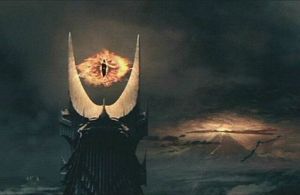
For students: The Ghost Map: The Story of London’s Most Terrifying Epidemic–and How It Changed Science, Cities, and the Modern World by Steven Johnson, which tells the story of the two men (a physician and a minister) who tracked the 1854 Cholera outbreak in London to its source: one well in Soho. It reads like a murder mystery but is a great illustration of how society influences the way we think, the use of the scientific method, the evolution of cities, and how all these things still influence us today.
Jacob Blumner
I’m determined to read Quiet: The Power of Introverts in a World That Can’t Stop Talking by Susan Cain because I’m interested in the intersection where introverts and extroverts meet, work, and live.
I would love my students to read Slowness by Milan Kundera. Though not necessarily his best book, I think it is increasingly prescient for our time and it is an enjoyable read.
Stephanie Roach
I’m determined to read: The Woman Who Died A Lot: A Thursday Next Novel by Jasper Fforde. I’ll leave it to the Cleveland Plain Dealer to describe why: “In Misery, Stephen King compares the euphoric feeling writers experience in creative bursts to ‘falling into a hole filled with bright light.’ Avid readers also know that feeling: A good story temporarily erases the world. British novelist Jasper Fforde has expanded on King’s simile in a wonderful seven-book series of novels featuring Thursday Next. Enormously knowledgeable about literary history, Fforde scatters nuggets for nerdy readers like me. By the end, all of Fforde’s myriad particles of plot, accelerated by his immense skill and narrative sense, collide, producing pyrotechnics and a passel of new particles to propel his next tale. I love the Thursday Next books, and when a new one appears, I don’t fall but leap into this bibliophile’s Wonderland.”
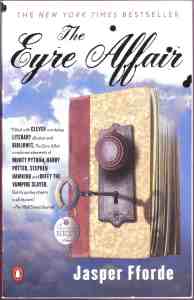
The book I’d love students to read this summer: The Eyre Affair by Jasper Fforde. Because this is how I fell in love with Jasper Fforde, his love of language, his ability to tell a good story and turn even the silly into something smart. Because reading and writing are, at heart, fun.
Monika Ehrlich
The book I’m determined to read this summer is The Girls of Atomic City by Denise Kiernan. The book details the development of a whole community of women (as in, there was an empty area in Tennessee where they created a “city”) during WWII to w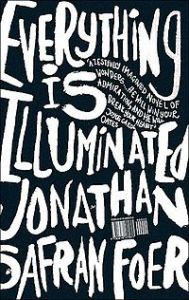 ork on the bomb…but they didn’t know that was what they were doing. I simply am intrigued by the topic and am trying to read more non-fiction.
ork on the bomb…but they didn’t know that was what they were doing. I simply am intrigued by the topic and am trying to read more non-fiction.
The book I’d love my students to read this summer is Everything is Illuminated by Jonathan Safran Foer. Foer is a superb writer – his use of humor (especially his humor), history, experimentation with structure and language and development of character would (I think!) grab some students who don’t find reading fiction enjoyable.
Mary Jo Kietzman
A 9-way tie! Janet Adelman, Blood Relations: Christian and Jew in The Merchant of Venice; Henry David Thoreau, Walden; Stanley Cavell, The Senses of Walden; Charles Dickens, David Copperfield; William Blake, Milton; and in the Bible: Joshua, Judges, Samuel, Kings.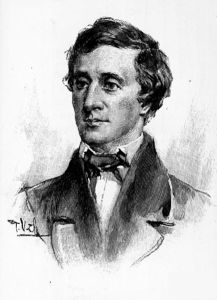
For students: Shakespeare, King Lear … so they are ready for the English department production!
Vickie Larsen
This summer I am reading: On the Genealogy of Morality, Friedrich Nietzsche, because I am thinking about modernity as an epistemology tha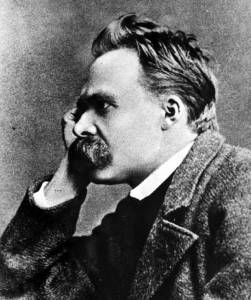 t developed, in part, as a reaction against medieval assumptions about knowledge and metaphysics.
t developed, in part, as a reaction against medieval assumptions about knowledge and metaphysics.
For students: Not Nietzsche, but J. M. Coetzee’s 2013 novel, The Childhood of Jesus because Coetzee is incredible and this book looks really disruptive
Steve Bernstein
Swann’s Way by Marcel Proust, translated by Lydia Davis. For a long time I’ve wanted to read Proust’s modernist masterpiece, In Search of Lost Time, in its entirety. I read Swann’s Way years ago but never moved on to the other six books. I’ve heard such good things about the newish Penguin translation (starting with Lydia Davis’s volume) that I’m trying again.
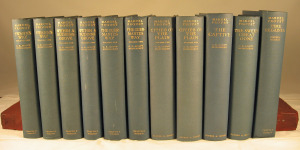
Madame Bovary by Gustave Flaubert. When I ask students, even M.A. students, if they’ve read this great novel, almost no one says yes. It’s pivotal! It’s wonderful! It’s time to read the book that mixes a plot concerning the poor fit between romantic daydreams and middle-class life with one of the most dazzling displays of narrative technique ever laid down anywhere. (Lydia Davis, a fabulous writer herself, has translated this one too.)
James Schirmer
One book I’m determined to rea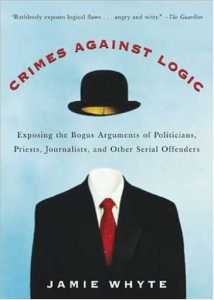 d: How Writing Came About, by Denise Schmandt-Besserat, because of my increasing interest in the history of writing alongside an already persistent interest in what we gain/lose in the move from handwriting to typing and texting.
d: How Writing Came About, by Denise Schmandt-Besserat, because of my increasing interest in the history of writing alongside an already persistent interest in what we gain/lose in the move from handwriting to typing and texting.
One book I’d love for students to read: Crimes Against Logic, by Jamie Whyte, because of the importance of understanding, dissecting, and taking down dishonest and illogical arguments made by those in positions of power.
Kazuko Hiramatsu
I’ve always been curious about why I react negatively to certain fonts. A New York Times article on fonts led me to Simon Garfield’s Just My Type last summer. This summer, I’m planning to read Stephen Coles’ The Anatomy of Type.
It’s not a book but I hope students will read the posts on Language Log. It’s a great blog by multiple linguists who comment daily on language-related issues.
Tom Foster
My planned reading this summer: Transatlantic by Colum McCann, due out in June. The book mixes history and fiction in following three crossings from the U.S. to Ireland over 150 years, from Frederick Douglass to Senator George Mitchell, and promises to be very interesting. McCann, in addition to crafting exquisite narratives, is one of the premier stylists writing in English today. McCann was born in Ireland and is now a citizen of this country, and his grounding in — and fascination with — both cultures shows through in his writing.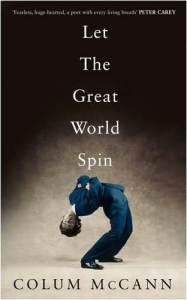
Continuing the theme, I would recommend to students McCann’s earlier Let the Great World Spin, which was a highly deserving winner of the National Book Award for 2009. He calls it his “9/11 novel” despite the fact that the events of 9/11 never appear. The lives of a disparate group of people—bereaved mothers of soldiers killed in Vietnam, a mother and daughter pair of prostitutes, artistic poseurs, a ruined Irish monk and his brother—are tied together by the events of the August day in 1974 when Phillipe Petit walked a wire between the Twin Towers. I read the evocative opening of Petit making his stroll in thin air, was instantly hooked, and never got unhooked. It is an amazing performance.
John Pendell
A book I’m determined to read this summer: Ian McEwan, Atonement. I’ll be spending some time in Britain this summer, and I like to read British authors while I’m there, particularly contemporary “greats.”
A book that students should read this summer: Dostoyevsky, The Brothers Karamazov. You might as well take the summer to ponder some big, and possibly disturbing, ideas. And if you’re going to do that, go really big.
